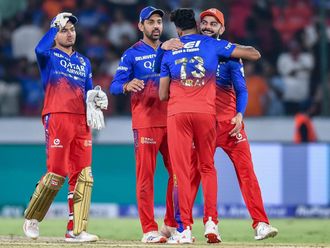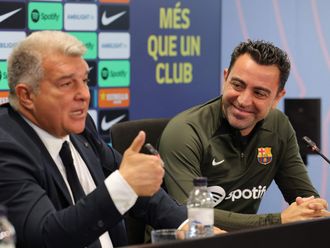New York: International Olympic Committee president Thomas Bach met with National Hockey League and players union officials on Friday but left with no promise NHL talent would compete at next year’s Olympics.
The NHL has shut down every four years since 1998 to allow star players to compete for their homelands in quest of Winter Olympic gold, but NHL commissioner Gary Bettman has said the IOC no longer wanting to pay for travel costs and insurance could end that tradition before the 2018 Pyeongchang Winter Games.
“This was a courtesy visit and there was a very good open and friendly atmosphere,” Bach said after the meetings. “Hopefully this has prepared the ground for successful negotiations between the NHL and International Federation.”
The IOC spent about $14 million to cover travel and insurance for NHL players for the 2014 Sochi Olympics.
Rene Fasel, president of the International Ice Hockey Federation, has been working to obtain the funds needed to cover those expenses for next February’s Winter Olympics.
“Of course, we all want to see the best players at the Olympic Winter Games PyeongChang 2018 and we know the players feel the same,” Bach said.
“Therefore, we hope even more that the International Federation and the NHL will reach a solution to make the Olympic dreams of the players come true.”
Not everyone likes the NHL’s Olympic shutdown every fourth February.
Many NHL team owners have been less than thrilled about sending their top talent away at mid-season to risk injury without any benefit other than growing the sport’s global appeal.
In addition, it forces games to be played over fewer days to fit a full season and play-offs into the same general time frame.
“The biggest hurdle is the concern about the disruption to the season, the compressed schedule, and a whole host of other things we have to talk about,” Bettman said last week at the NHL All-Star Game in Los Angeles.
“We said from the outset that if they are not going pay the expenses then we don’t even have to think about this.
“When the IOC said they didn’t think it was worth it, it opened a whole can of worms.”












